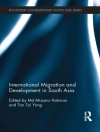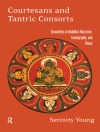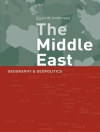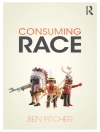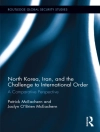The concept of sustainability holds that the social, economic, and environmental factors within human communities must be viewed interactively and systematically. Sustainable development cannot be understood apart from a community, its ethos, and ways of life. Although broadly conceived, the pursuit of sustainable development is a local practice because every community has different needs and quality of life concerns. Within this framework, contributors representing the disciplines of anthropology, sociology, geography, economics, law, public policy, architecture, and urban studies explore sustainability in communities in the Pacific, Latin America, Sub-Saharan Africa, Eastern Europe, and North America.
Contributors: Janet E. Benson, Karla Caser, Snjezana Colic, Angela Ferreira, Johanna Gibson, Krista Harper, Paulo Lana, Barbara Yablon Maida, Carl A. Maida, Kenneth A. Meter, Dario Novellino, Deborah Pellow, Claude Raynaut, Thomas F. Thornton, Richard Westra, Magda Zanoni
Cuprins
List of Tables and Figures
Acknowledgements
Introduction
Carl A. Maida
PART I: LOCAL AND GLOBAL KNOWLEDGES
Chapter 1. Sustainability: Where, When, for Whom? Past, Present, and Future of a Local Rural Population in a Protected Natural Area (Guaraqueçaba, Brazil)
Claude Raynaut, Magda Zanoni, Angela Ferreira, and Paulo Lana
Chapter 2. Alaska Native Corporations and Subsistence: Paradoxical Forces in the Making of Sustainable Communities
Thomas F. Thornton
Chapter 3. Communities Out of Place
Johanna Gibson
Chapter 4. “Talking About Kultura and Signing Contracts”: The Bureaucratization of the Environment on Palawan
Island (the Philippines)
Dario Novellino
PART II: LOCAL PRACTICES: ADAPTIVE STRATEGIES AND STATE RESPONSES
Chapter 5. Does Everyone Suffer Alike? Race, Class, and Place in Hungarian Environmentalism
Krista Harper
Chapter 6. Attachment Sustains: The Glue of Prepared Food
Deborah Pellow
Chapter 7. Globalization, Local Practice, and Sustainability in the High Plains Region of the United States
Janet E. Benson
Chapter 8. Quality of Life, Sustainability, and Urbanization of the Oxnard Plain, California
Barbara Yablon Maida and Carl A. Maida
PART III: SOCIAL CAPITAL, CIVIC ENGAGEMENT, AND GLOBALIZATION
Chapter 9. Linked Indicators of Sustainability Build Bridges of Trust
Kenneth A. Meter
Chapter 10. The Design of the Built Environment and Social Capital: Case Study of a Coastal Town Facing Rapid Changes
Karla Caser
Chapter 11. Sociomaterial Communication, Community, and Ecosustainability in the Global Era
Richard Westra
Chapter 12. The Prospect of Sustainability in the Culture of Capitalism, Global Culture, and Globalization: A Diachronic Perspective
Snjezana Colic
Glossary
Notes on Contributors
Index
Despre autor
Carl A. Maida is a professor in the Institute of the Environment and Sustainability at the University of California, Los Angeles. A medical anthropologist, he has conducted ethnographic fieldwork on health and the environment in metropolitan Los Angeles. Previous publications include Pathways Through Crisis: Urban Risk and Public Culture (Rowman & Littlefield, 2008), Children and Disasters (Routledge, 1999), and The Crisis of Competence: Transitional Stress and the Displaced Worker (Routledge, 1990).



